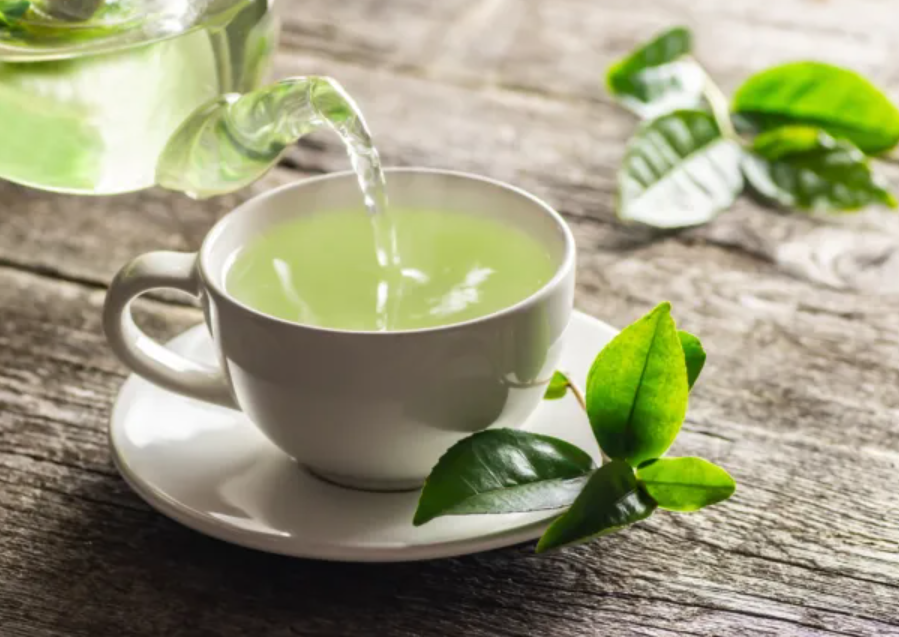Green tea is one of the world’s most consumed beverages and for good reason. Beyond its refreshing taste and calming aroma, green tea offers a host of health benefits, from better brain function to disease prevention. But can this antioxidant-rich drink truly help you lose weight? Many believe green tea supports fat loss and boosts metabolism naturally. Let’s explore the science behind using green tea for weight loss and how to safely include it in your daily routine.
What Is Green Tea and How Is It Different From Other Teas?
Green tea is made from the unoxidized leaves of the Camellia sinensis plant. Unlike black or oolong tea, which undergo fermentation, green tea is minimally processed, helping retain its natural antioxidants and bioactive compounds. These include catechins like epigallocatechin gallate (EGCG) and L-theanine, both of which are key contributors to green tea’s health effects.
Catechins are a type of flavonoid that work as antioxidants, fighting off free radicals in the body. This antioxidant action is believed to support various aspects of health, including weight management, fat metabolism, and cardiovascular function.
Can Green Tea Really Help You Lose Weight?
Yes, green tea may support weight loss, but it’s not a magic bullet. Its benefits stem from its ability to boost metabolism, increase fat oxidation, and slightly suppress appetite. Drinking green tea alone won’t cause dramatic weight loss, but when combined with a healthy diet and exercise, it can contribute to consistent, gradual fat loss especially around the belly area.
Let’s look at the mechanisms behind this claim.
How Does Green Tea Boost Metabolism?
The metabolism-boosting effect of green tea comes mainly from its high EGCG content. According to studies published in peer-reviewed journals like Journal of Research in Medical Sciences, EGCG supports a process called thermogenesis the body’s production of heat from metabolizing food.
This increased heat production raises your resting metabolic rate, helping your body burn more calories even when you’re not active. A higher metabolic rate creates a caloric deficit, which is essential for weight loss.
Additionally, caffeine in green tea enhances this effect by stimulating the nervous system and encouraging the release of adrenaline, which also boosts calorie burning.
How Does Green Tea Promote Fat Oxidation?
Fat oxidation refers to the process of breaking down fat stores and converting them into energy. Green tea catechins, especially EGCG, have been shown to activate enzymes involved in fat breakdown, making it easier for your body to access stored fat for energy use.
This effect makes your body less dependent on glucose and more efficient at using triglycerides a form of stored fat as fuel. Over time, consistent fat oxidation can reduce your total body fat, particularly visceral fat around the abdomen.
What Role Does Caffeine in Green Tea Play?
Caffeine is a natural stimulant found in green tea, although in smaller amounts than coffee. It promotes lipolysis (the breakdown of fats) and enhances physical performance by increasing adrenaline levels. This makes it easier to be active and burn more calories during workouts.
Caffeine also has mild appetite-suppressing effects, which can help control food cravings and reduce total calorie intake. Additionally, it enhances alertness and focus, which may indirectly help you stick to a healthy eating and exercise plan.
How Can You Add Green Tea to Your Daily Routine for Weight Loss?
Incorporating green tea into your daily lifestyle doesn’t have to be complicated. Here are three simple and effective ways to consume it:
1. Classic Hot Green Tea
- Use high-quality green tea leaves or a tea bag.
- Heat water to about 175°F (80°C) don’t boil it, as this can make the tea bitter.
- Steep for 2–3 minutes.
- Drink it plain, without sugar or honey, to keep it low-calorie.
2. Lemon Green Tea
- Add a squeeze of fresh lemon juice to your brewed tea.
- Lemon not only enhances flavor but also boosts vitamin C, which supports immune function and digestion.
3. Iced Green Tea
- Brew a stronger batch of green tea and let it cool.
- Pour over ice and add mint leaves or cucumber slices for a refreshing twist.
- Ideal for summer and a great replacement for sugary iced drinks.
Aim to drink 2–3 cups per day, spaced between meals. Avoid drinking it on an empty stomach, as the tannins may irritate your digestive system.
Are There Any Side Effects of Drinking Green Tea for Weight Loss?
While green tea is safe for most people, excessive consumption may cause issues. Here are some potential concerns:
- Caffeine sensitivity: Some individuals may experience jitters, anxiety, or sleep disturbances with too much caffeine. Stick to moderate amounts.
- Liver concerns: High doses of green tea extract, especially in supplement form, have been associated with liver problems in rare cases.
- Pregnancy and breastfeeding: Women should limit their caffeine intake, including that from green tea. Consult a doctor before starting any herbal regimen.
- Medication interactions: Green tea may interfere with medications like blood thinners or drugs for high blood pressure. Always consult your healthcare provider if you are on medication.
What’s the Final Verdict:
Green tea offers a gentle, natural boost to your weight loss journey. While it won’t cause drastic changes on its own, when combined with a balanced diet, regular physical activity, and proper sleep, it can help support your overall fat-loss efforts. Its rich antioxidants also provide multiple health benefits beyond just weight control, making it a smart addition to any wellness routine.
If you’re trying to lose weight in 2025, sipping green tea a few times a day might be a small habit with surprisingly big results just remember to enjoy it in moderation and focus on consistency.









